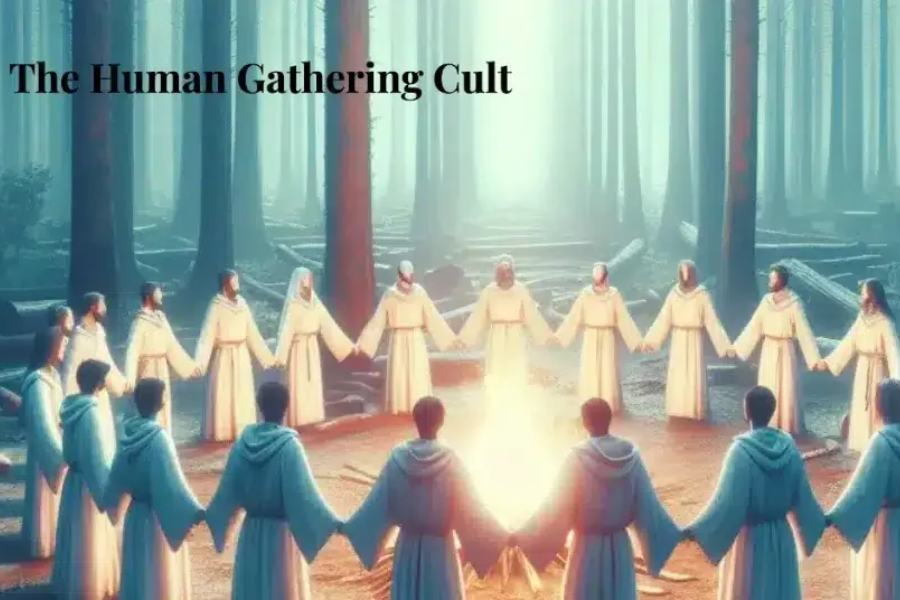Human Gathering Cults: A Psychological Perspective
Cults of human gatherings are a fascinating phenomenon that shed light on the beliefs and behavior of a group. These groups provide insights into human psychology and the fundamental need for social connection, belonging, and meaning, often centered on charismatic leaders or distinctive ideologies. Human gathering cults, their formation, and their impact on individuals and society are the subjects of this investigation.
Understanding Human Gathering Cults
Definition and Characteristics
Human social event cliques are bunches that mix around a common conviction or pioneer, described by extreme dedication and particular customs. These factions can change generally in their philosophies, going from strict and profound to political and social developments. Notwithstanding their variety, they share normal characteristics like areas of strength for an of local area, various leveled structures, and frequently, tyrant initiative.
Historical Context
Human social occasion cliques are not another peculiarity. Since forever ago, different religions have arisen, frequently in the midst of social commotion or vulnerability. From the secret factions of antiquated Greece and Rome to additional cutting edge models like Individuals’ Sanctuary drove by Jim Jones, these gatherings reflect repeating examples of human way of behaving and cultural elements.
Psychological Appeal
One of the center inquiries encompassing human social event religions is the reason people are attracted to them. A few mental elements add to this allure, including the requirement for having a place, personality development, and the quest for importance. These components make ripe ground for factions to draw in and hold individuals.
The Role of Charismatic Leadership
Charismatic Authority
At the core of numerous human social event cliques is a charming pioneer who applies a significant impact over devotees. This pioneer frequently has characteristics that rouse dedication and steadfastness, like appeal, influence, and the capacity to verbalize a convincing vision. The pioneer’s charm is integral to the faction’s arrangement and supportability.
Psychological Manipulation
Alluring pioneers frequently utilize mental methods to control and control individuals. These can incorporate inculcation, segregation from outside impacts, and the utilization of dread or culpability. Understanding these techniques is pivotal for grasping how cliques keep up with power and attachment.
Social Dynamics within Cults
Group Cohesion and Identity
Human social occasion factions encourage serious areas of strength for an of gathering personality and union. Individuals frequently consider themselves to be essential for an elite local area with an interesting reason. This feeling of having a place satisfies basic human necessities and supports obligation to the gathering.
Rituals and Symbolism
Ceremonies and images assume a critical part in these factions. These practices make a common encounter that fortifies bunch bonds and supports the religion’s belief system. Customs can go from straightforward services to expand, profoundly organized occasions.
Psychological Effects on Members
Positive Aspects
While human social event religions are frequently seen adversely, they can give specific mental advantages to individuals. These incorporate a feeling of direction, consistent reassurance, and an organized climate. For some’s purposes, these advantages offset the negative parts of clique contribution.
Negative Consequences
Notwithstanding, the negative mental impacts of human social event religions can be serious. These may incorporate close to home control, loss of individual independence, and mental trouble. Individuals may likewise encounter trouble reintegrating into society in the event that they decide to leave the faction.
Cults in Modern Society
Technological Influence
The coming of the web and virtual entertainment has changed the scene of human social affair factions. These innovations empower factions to contact a more extensive crowd and work with correspondence and enlistment. Online people group can likewise work as virtual factions, displaying comparable mental elements.
Case Studies
Inspecting explicit contextual analyses of these get-together religions gives further experiences into their activity and effect. Prominent models incorporate the Branch Davidians, Paradise’s Door, and the NXIVM clique. Every one of these gatherings shows various parts of religion elements and mental control.
Breaking Free from Cult Influence
Deprogramming and Recovery
Leaving a human get-together religion can be a difficult and complex cycle. Deprogramming includes fixing the mental molding that individuals have gone through. Support from emotional wellness experts, family, and companions is significant for recuperation and reintegration into society.
Prevention and Awareness
Forestalling the hurtful impact of human social event factions requires schooling and mindfulness. By understanding the mental strategies utilized by factions, people can be better prepared to perceive and oppose their impact. Public mindfulness crusades and instructive projects can assume an imperative part in counteraction.
The Future of Human Gathering Cults
Evolving Forms
As society advances, so too do human get-together religions. Future cliques might adjust to new advances and social patterns, making them more modern and harder to recognize. Persistent exploration and carefulness are important to comprehend and moderate their effect.
Ethical Considerations
Tending to the peculiarity of these get-together cliques additionally brings up moral issues. These incorporate the harmony between strict opportunity and security from hurt, as well as the obligations of state run administrations and social orders in managing clique exercises.
Facts:
Definition: Human gathering cults are groups that come together around a shared belief or charismatic leader, characterized by intense devotion and distinct rituals.
Historical Presence: These cults have existed throughout history, from ancient mystery cults in Greece and Rome to modern-day groups like the People’s Temple.
Psychological Appeal: Individuals are often drawn to cults due to psychological needs for belonging, identity, and meaning.
Charismatic Leaders: Many cults are led by charismatic leaders who use charm and persuasive techniques to gain followers’ devotion.
Manipulative Techniques: Cult leaders often use psychological manipulation, including indoctrination, isolation, and the exploitation of fear and guilt.
Group Cohesion: Cults foster a strong sense of community and identity among members, often through shared rituals and symbols.
Positive Effects: Some members find a sense of purpose, emotional support, and a structured environment in cults.
Negative Effects: Cults can cause severe psychological distress, loss of personal autonomy, and difficulty reintegrating into society.
Modern Influence: The internet and social media have expanded the reach of cults, facilitating easier recruitment and communication.
Case Studies: Notable cults include the Branch Davidians, Heaven’s Gate, and NXIVM, each illustrating various aspects of cult dynamics and manipulation.
Summary:
Human gathering cults are a complex and multifaceted phenomenon that offers a window into the depths of human psychology. By examining the psychological mechanisms that drive individuals to join and remain in these groups, we gain a better understanding of the powerful need for connection, meaning, and belonging that underlies human behavior. Understanding these dynamics is crucial for addressing the challenges posed by cults and supporting those affected by them. By studying these groups, society can learn from past mistakes and work towards creating a more understanding and supportive environment for all its members.
FAQ:
What defines a human gathering cult?
A human gathering cult is defined by a group of individuals who come together around a shared belief or charismatic leader, exhibiting intense devotion, distinct rituals, and often hierarchical structures.
Why do people join cults?
People join cults due to various psychological factors such as the need for belonging, identity formation, and the search for meaning and purpose.
What role does a charismatic leader play in a cult?
A charismatic leader is central to a cult’s formation and sustainability, often using charm and persuasive techniques to inspire devotion and loyalty among followers.
How do cult leaders manipulate their followers?
Cult leaders use psychological manipulation methods such as indoctrination, isolation from outside influences, and the exploitation of fear and guilt to control their followers.
Are there any benefits to being in a cult?
Some individuals find benefits in cults, such as a sense of purpose, emotional support, and a structured environment.
What are the negative consequences of being in a cult?
Negative consequences can include emotional manipulation, loss of personal autonomy, psychological distress, and difficulty reintegrating into society after leaving the cult.
How has technology affected modern cults?
Technology, particularly the internet and social media, has expanded the reach of cults, making it easier for them to recruit members and maintain communication.
What can be done to help someone leave a cult?
Deprogramming and recovery involve undoing psychological conditioning, with support from mental health professionals, family, and friends being crucial for reintegration into society.
How can society prevent the influence of harmful cults?
Education and awareness about the psychological tactics used by cults can help individuals recognize and resist their influence, supported by public awareness campaigns and educational programs.
Discover in-depth analysis and top stories from India and around the world at Tamasha.blog.


